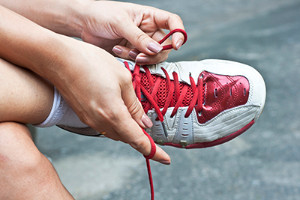
Running offers a multitude of benefits for both physical and mental well-being. It strengthens the cardiovascular system, improves lung function, and boosts metabolism, aiding in weight management and overall health. Beyond the physical advantages, running also promotes mental clarity, stress relief, and a sense of accomplishment. However, to reap these benefits safely and effectively, investing in good running shoes is vital. Quality footwear provides essential support, cushioning, and stability, reducing the risk of injuries such as sprains, strains, and stress fractures. Proper running shoes are designed to accommodate the unique biomechanics of each individual, offering optimal shock absorption and alignment for a smoother, more comfortable stride. By selecting the right shoes for their foot type and running style, runners can enhance performance, minimize discomfort, and prolong their running journey, ensuring they can continue to enjoy the myriad benefits that running has to offer for years to come. Injuries to the foot and ankle can happen from running, and it is essential the right running shoes are chosen. It is suggested that you contact a podiatrist who can treat foot and ankle injuries, and guide you on what the best type of running shoes are right for you.
If you are a runner, wearing the right running shoe is essential. For more information, contact Gary Saphire, DPM from Parkway Podiatry. Our doctor can provide the care you need to keep you pain-free and on your feet.
Choosing the Right Running Shoe for Your Foot Type
To increase performance and avoid the risk of injury, it is important to choose the right running shoe based on your foot type. The general design of running shoes revolves around pronation, which is how the ankle rolls from outside to inside when the foot strikes the ground.
- Neutral runners are able to choose from a wide variety of shoes, including minimalist shoes or even going barefoot.
- Runners who overpronate, or experience an over-abundance of ankle rolling, should choose shoes that provide extra motion control and stability.
- Runners who underpronate, or supinate, have feet that have high arches and lack flexibility, preventing shock absorption. They require shoes with more flexibility and cushion.
If you have any questions please feel free to contact our office located in Brooklyn, NY . We offer the newest diagnostic and treatment technologies for all your foot and ankle needs.



